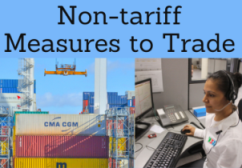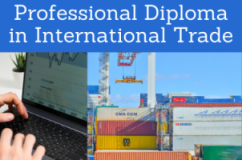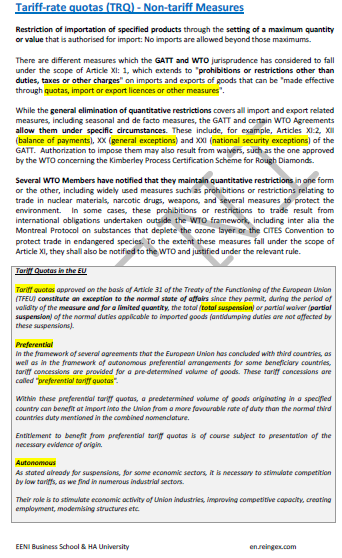Import license, Quotas (Trade Restrictions)

Tariff-rate quotas (TRQ, Trade) Import licenses (Non-tariff Measures)
- Tariff-rate Quotas (TRQ) in Foreign Trade
- Import licenses
- Other prohibitions or import restrictions
The objectives of the subject “Import licenses, quotas and prohibitions (Non-tariff Measures)” are the following:
- To understand the Tariff-rate Quotas and import licensing (non-automatic) concepts
- To study what types of Tariff-rate Quotas and licenses exist and how they can affect an exporter
- To analyze the other types of prohibitions or import restrictions

The Subject “Import licenses, quotas and prohibitions (Non-tariff Measures)” belongs to the following Online Programs taught by EENI Global Business School:
Courses: Non-tariff Measures, Foreign Trade Management.


Masters: International Business, Foreign Trade, International Transport.

Languages 
 Licencias de importación
Licencias de importación
 licenses d'importation, contingents
licenses d'importation, contingents  Licenças de importação.
Licenças de importação.
Trade Facilitation - Trade Facilitation Agreement - Kyoto Convention - Convention Harmonization of Frontier Controls of Goods.

Import licenses, quotas and prohibitions.
When a government wishes to restrain the quantity of products to be imported, it implements this type of non-tariff technical measures of control and / or prohibitions. These measures are usually implemented through the import licenses (not-automatic), quotas or prohibitions.
The WTO (GATT, WTO Agreement on Safeguards) prohibits, except in exceptional cases, this type of non-tariff measures.
The granting of an import license is not automatic, it may be discretionary or through a requirement by which certain criteria are met.
Licenses can be based on:
- Economic reasons
- Without specific ex ante criteria (discretionary license)
- Specific use
- Licensing linked with local production
- Political, religious-moral, cultural reasons
Tariff-rate quotas (TRQ) / Contingents
Import licenses for non-economic reasons are generally implemented through quotas (contingents).
A quota (tariff) is a restriction on the importation of a series of goods imposed by a Government. They are usually based on the quantities or the establishment of a maximum value.
A contingent (quota) can be of indefinite duration (permanent contingent, which can be allocated by countries or global) or temporary.
Sample - Import licenses, Tariff-rate quotas (TRQ) and prohibitions (Non-tariff Measures):

(c) EENI Global Business School (1995-2024)
We do not use cookies
Top of this page


